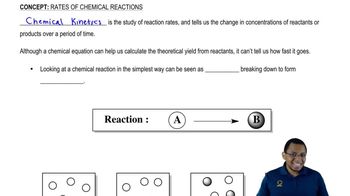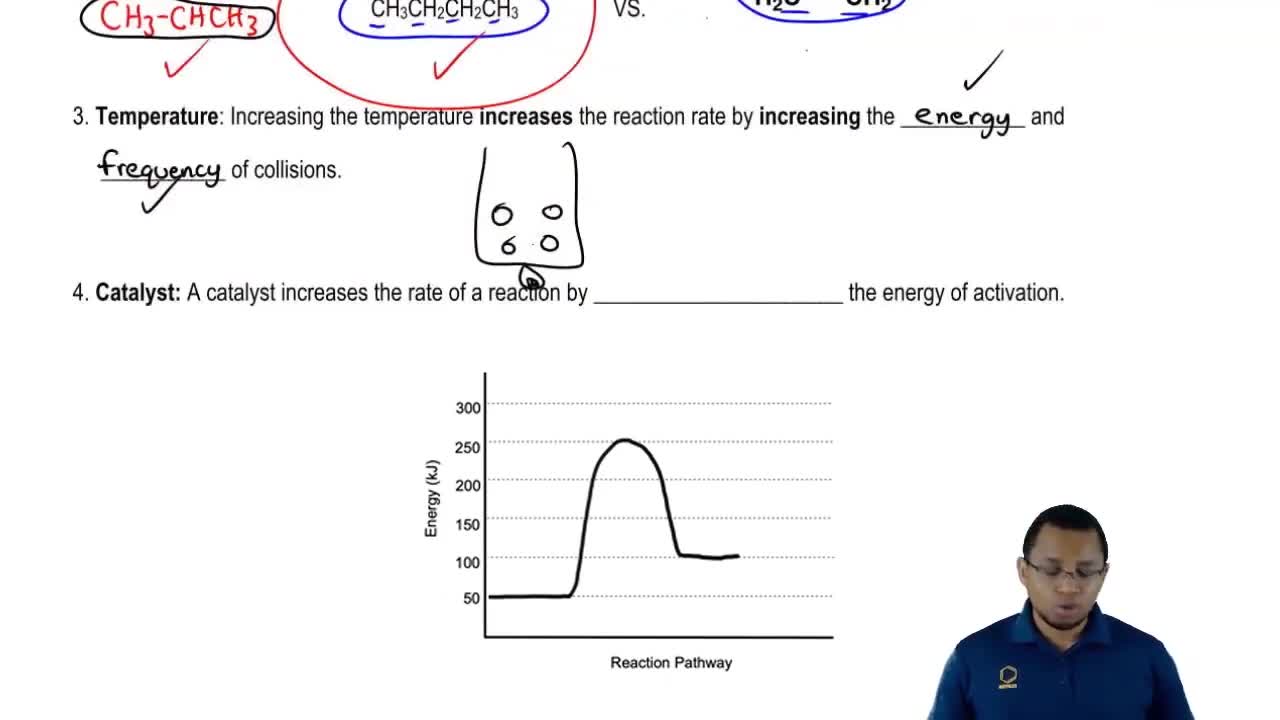How would each of the following change the rate of the reaction shown here? 2SO2(g) + O2(g) → 2SO3(g)
a. adding more SO2(g)
 Verified step by step guidance
Verified step by step guidance Verified video answer for a similar problem:
Verified video answer for a similar problem:



 1:07m
1:07mMaster Rate of Reaction Concept 1 with a bite sized video explanation from Jules
Start learning